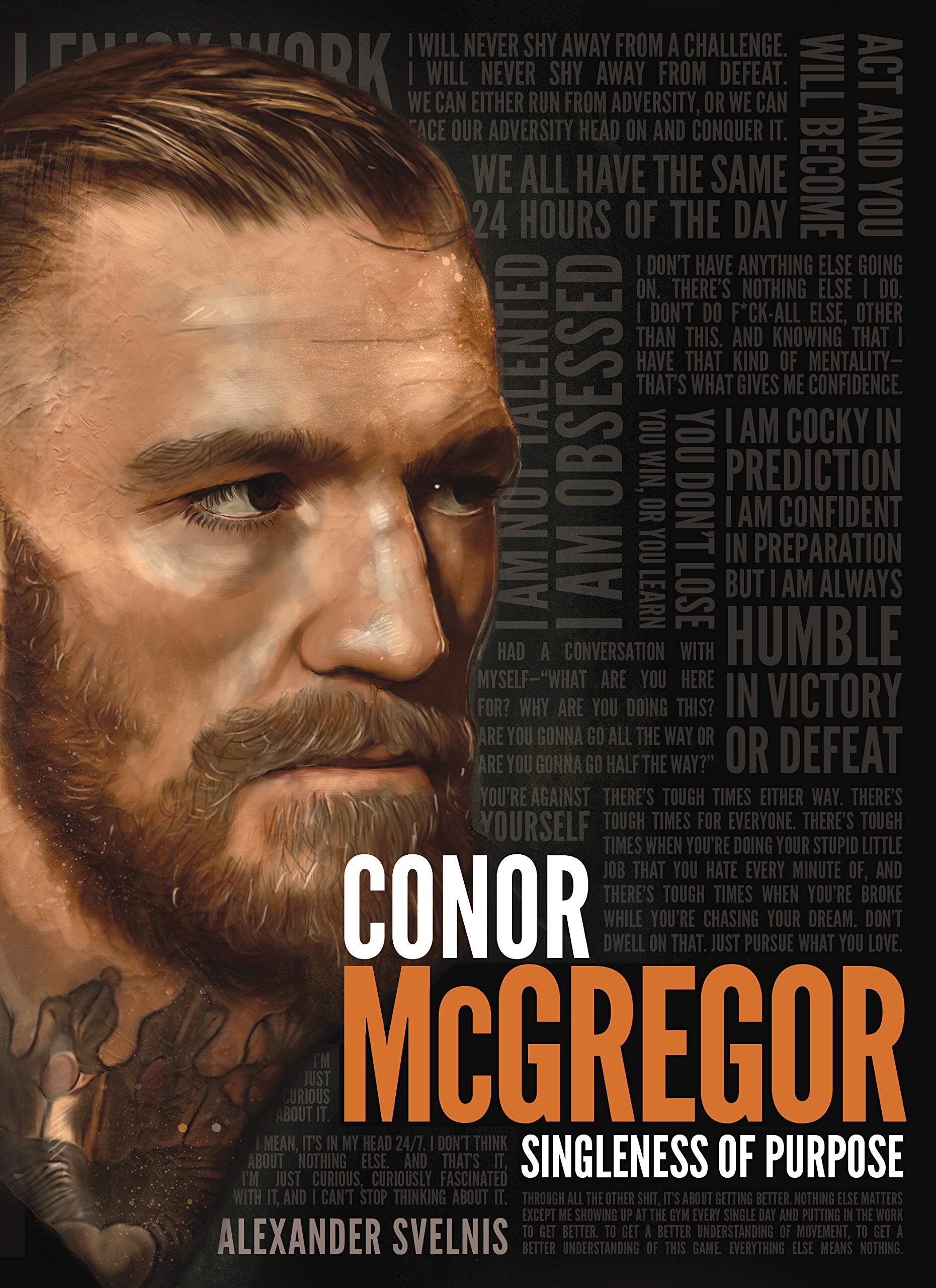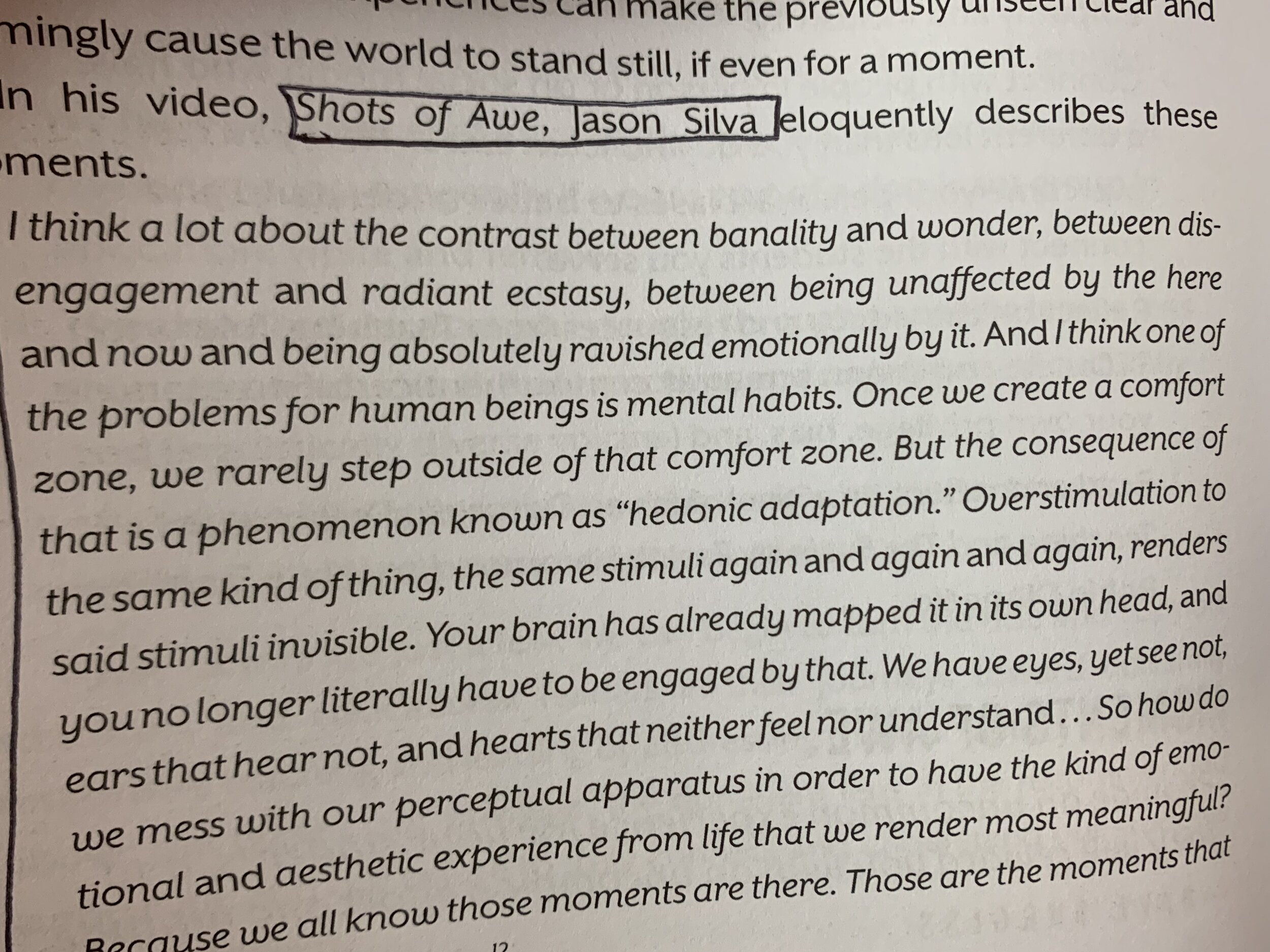“As those first few weeks went on, I watched Mark lead. When he’d walk into the faculty room, people would smile. He made people laugh. Never once did I hear Mark complain. He brought his best every single day - and it showed. Mark practiced what he preached to his students. his students loved him for it and so did the team around him” (pg 3).
“If you want to get through to {someone}, maybe it’s you who needs to change” (pg 4).
“I had been so focused on myself that I couldn’t see him. I had been so focused on my needs, so insistent that he conform to my rules and my ways of doing things, that I had completely missed looking at his heart and what it was that he really needed” (pg 5).
“When I changed my mindset from what I taught to who I taught, the real work came into focus” (pg. 6).
“Teachers are some of the only people on the planet who go to bed worrying about other people’s children” (pg. 6).
“In our schools and classrooms, we need to ensure that students are not experience rich and relationship poor” (pg 11).
“Education begins and ends with people, and we must own our roles in this process . . . we must love our kids more than we love our past. We must love our kids more than we love our habits. We must love our kids more than we love our own egos. We must love our kids enough to change ourselves when needed” (pg 16).
“We may not get the chance to choose which kids or families to serve, but we do get to decide what kind of climate we want to serve them in” - Jimmy Casas, (pg. 19).
The four pillars to create a dynamic learning culture:
Leadership
Interactions
Trust
Risk-taking
“What you do has far greater impact than what you say” - Stephen Covey (pg 20).
“Never underestimate your own unique talents and abilities; they have the power to shape the future of our schools and create a better learning culture that our students need and deserve” (pg 21).
“Toxic school cultures are real. Toxic, egocentric, self-serving “leadership” is real. Innovation will not thrive in these school and classroom cultures, and risk-taking will be minimal. In these spaces, it is ultimately the students who have the most to lose” (pg 22).
“The best leaders don’t point the finger outward before they point the finger at themselves and examine inward” (pg 22).
“If you work in a toxic environment, you have two choices: maximize blame and minimize impact or maximize impact and minimize blame” (pg 23).
“Right now, your school’s culture perfectly aligns with the mindset and actions of the adults in your building” (pg 23).
“In our schools and in our classrooms, every interaction matters . . . A single interaction can change a person’s life forever” (pg 30).
“We must own our actions. We must own our mindsets. We must own the opportunities that we take and those we pass on. We must own our roles in creating the cultures our kids need to thrive” (pg 30).
“to build a team, you must first build relationships” (pg 36).
How to build trust:
Be honest.
Be authentic
Be kind
Be Empathetic
Be Reliable
Be Consistent
Be Competent
For Tuesday morning meeting: “What’s your story? What are the life experiences that are core to who you are? What are the things in life that have molded your lens and impacted the way you see the world? How does your unique story impact your work as an educator? “ (pg 43).
“As we walk through the halls of our schools, do we seek to understand? When others walk by, do we see faces or do we see hearts? Do we see data points and test scores or do we see the stories and hearts of children? Do we see colleagues first or the people those colleagues are?” (pg 52).
“Being an educator and showing love for others while your own heart is hurting is an unbelievable courageous act” (pg 52).
“If our habits have more resilience than our purpose, our desired impact will be shackled” (pg 61).
“Informally interview the most senior people on your staff. Ask them to reflect on the changes they’ve seen over time as well as the things that hold true decades later and are as important as the day they started” (pg 65).
“Whether it comes from the school board lever where many decisions are made regarding the future of the district, at the building level where the year has been planned, or at the classroom level related to teaching and learning, one of the most extensive needs evident in today’s schools is a clear vision of the path forward. A lack of vision is often to blame for the feeling of one spinning their wheels or the cause of a large state of confusion” (pg 65).
“Everybody ends up somewhere in life. A few people end up somewhere on purpose” (pg 67).
“Fold a large sheet of paper into thirds horizontally. On the left section, identify five to ten skills or characteristics you want your students to have one year from today. In the center section, identify three to four ways in which you currently help cultivate each on of those skills. On the right-hand section, identify two to three ways you can further build each skill in your curricular area” (pg 70).
“To be learner-centered, it means that we, as educators, have to evolve as the world does . . . to be learner-centered, we have to understand how learners actually learn best. The more we understand how people learn, the more we can understand how to create more personal and authentic experiences” (71).
The Learning Sciences: 10 Key Principles
Learning is a process that involves effort, mistakes, reflection, and a refinement of strategies.
Thinking deeply about the to-be-learned material help students pay attention, build memories, and make meaning out of what they are learning
Communicating high expectations and keeping learners at the edge of their mystery helps students reach their potential.
Retrieval practice strengthens memory and helps students flexibly apply what they learn.
Spacing out learning and interweaving different content strengthens learning.
Students are more motivated to learn when they are interested, have a sense of autonomy, and understand the purpose behind what they are learning.
Students learn well when they feel safe and connected.
Collaboration and social interaction can be powerful learning experiences because they encourage deeper processing and engage the “social brain.”
Student’s physical well-being, including nutrition, sleep, and exercise, impacts learning.
The entire environment, from space to temperature to lighting, can affect learning (pg 73)
“Which principles resonate with you the most? Why? What’s one principle you could focus on more in your work?”
“Personal and authentic learning won’t happen if our classrooms are information rich yet experience poor” (pg 96).












